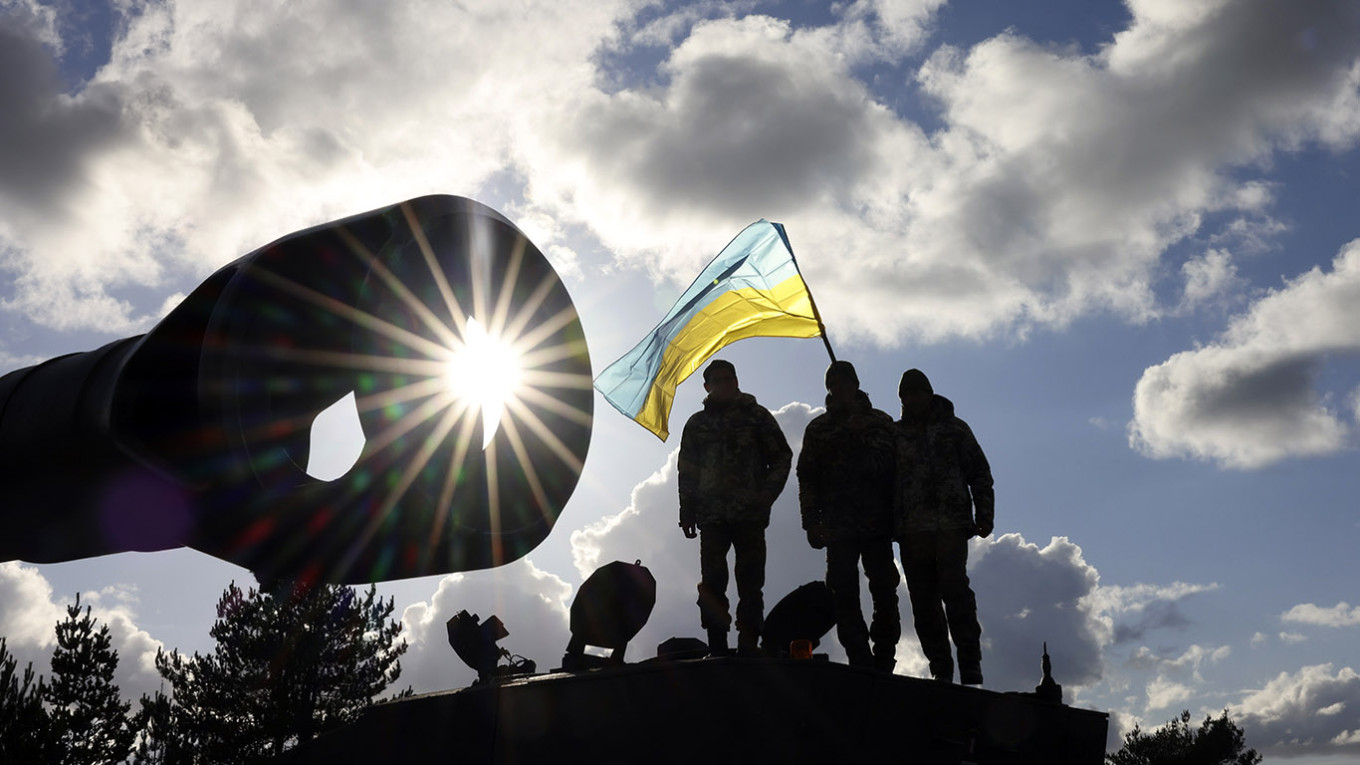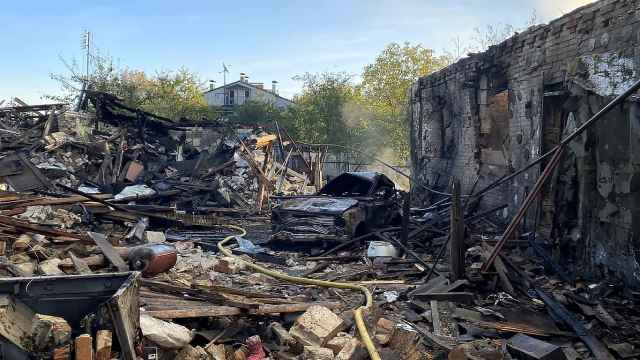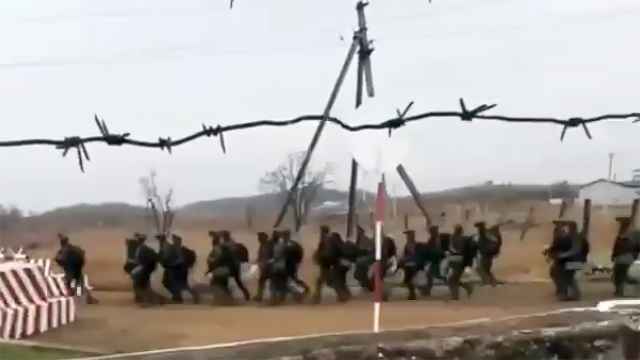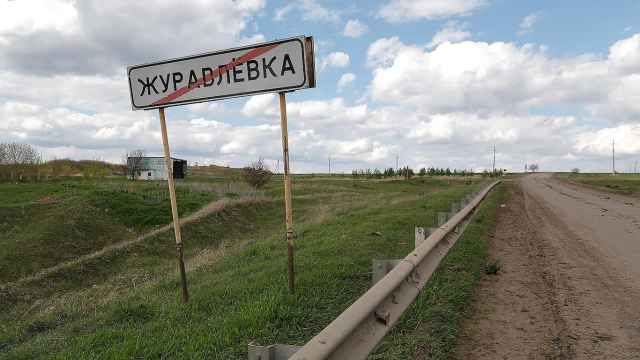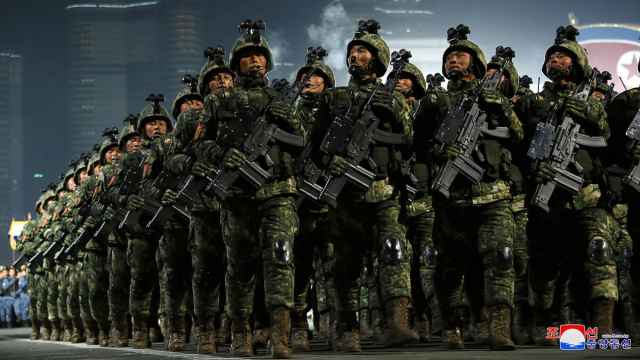The war in Ukraine has reached a pivotal moment. As Russia intensifies its military pressure and international attention drifts elsewhere, the country’s survival — and the security of Europe — hangs in the balance. Without a meaningful surge in Western support, both political and material, Ukraine’s ability to hold the line will falter with far-reaching consequences.
Despite some recent tactical setbacks, including the stalling of Russian advances near Sumy, Moscow continues to make incremental gains in Donbas. While they are not yet strategic breakthroughs, these advances underscore a worrying reality: Ukraine is on the defensive, under constant pressure and short on resources.
Worse still, Russia’s campaign against Ukraine is no longer confined to the front lines. Civilian centers — Kyiv, Kharkiv, Sumy and Dnipro — have been repeatedly targeted in recent weeks with the largest barrages of drones and missiles seen so far. Dozens of civilians, including children and the elderly, have been killed in these strikes, which are designed not only to cause death and destruction but to sap Ukraine’s morale and will to resist. This is a deliberate strategy to wear down Ukrainian society and exhaust its capacity to defend itself.
Meanwhile, global attention has shifted elsewhere. Escalating tensions between Israel and Iran and broader instability in the Middle East have absorbed the focus of Western leaders and media outlets.
For the Kremlin, this distraction is very good news. As the world looks away, Russia has seized the opportunity to escalate its assault on Ukraine with minimal diplomatic or strategic cost.
This is precisely why the West must act now. A significant increase in military aid and the implementation of truly biting sanctions are not just necessary — they are urgent. Without them, Ukraine’s ability to continue defending itself, let alone reclaim lost territory, will be severely compromised.
The war is now in its fourth year. All efforts to negotiate a ceasefire or even a temporary reduction in hostilities have failed. On June 20, Kremlin spokesman Dmitry Peskov made Russia’s position crystal clear: “Now we have a strategic advantage. Why should we lose it? We are not going to lose it. We are going further. We’re advancing and we’ll continue to advance.”
On the same day, Russian President Vladimir Putin used his appearance at the St. Petersburg International Economic Forum to signal even broader ambitions in Ukraine: “I consider Russians and Ukrainians to be one people,” he said. “In that sense, all of Ukraine is ours.”
This is not just rhetoric — it is doctrine. Misinterpreting Putin’s threats has been a Western failure long before Russia’s full-scale invasion of Ukraine in 2022. Russia’s current war is not just about territory. It is about conquest and subjecting Ukraine to the Kremlin’s will. Putin’s vision for Ukraine is one in which the country ceases to exist as an independent state.
Given these conditions, it is not inaccurate to say that Ukraine is currently losing the war. Evidence of a large-scale Russian buildup in the Zaporizhzhia region suggests that a major offensive could be in the making. While a breakthrough of Ukrainian defenses remains unlikely in the near term, such a push would stretch Ukraine’s already strained resources even thinner. At a time when Kyiv is desperately short on manpower and ammunition, the ability to mount a counteroffensive or even defend vulnerable positions is in serious doubt.
Compounding the problem is the collapse of U.S. military support since Donald Trump returned to the White House. Not a single aid package has been approved under the new administration. Badly needed defense systems have been redirected to Israel. The Trump team appears convinced that halting military aid will create diplomatic leverage over Moscow, allowing Washington to mediate an end to the conflict. This is a dangerous illusion. As Moscow’s statements and actions demonstrate, the Kremlin has no genuine interest in peace — only in total victory, which Kremlin officials have alluded to again and again. As I have argued in other pieces, a ceasefire now would give Russia the opportunity to regroup, rearm, and prepare for the next stage of aggression.
Europe’s response has been equally irresolute. While the rhetoric from EU leaders remains firm, actual support has lagged. Seventeen sanctions packages have been passed, yet none have meaningfully dented Russia’s capacity to wage war. Hungary and Slovakia continue to block more aggressive measures, especially those targeting Russian oil and gas. As a result, the EU’s 18th sanctions package remains stalled in Brussels. Meanwhile, several studies show that the EU has spent more money on Russian energy imports than on aid to Ukraine, despite its public commitment to supporting Kyiv.
The recent escalation in the Middle East has only added to Ukraine’s diplomatic isolation. Western governments, particularly in Washington, are consumed by developments in Iran. While Tehran’s actions demand serious attention, this geopolitical pivot has come at a steep cost for Ukraine. Senator Lindsey Graham’s proposed sanctions bill targeting Russia has stalled. Trump has reportedly pushed back against the idea of new sanctions, arguing that they would interfere with his ability to mediate. Yet on June 29, Graham told ABC News that Trump is now ready to “move” the bill forward. The proposed legislation would impose tariffs of up to 500% on nations doing business with Russia. If enforced, these measures could inflict real economic pain on the Kremlin. Yet the bill’s fate still remains uncertain, and even if passed, effective enforcement is far from guaranteed.
The cumulative effect of all this is a deepening Western failure. Political divisions in Washington and Brussels have created a vacuum that Moscow is actively exploiting. Ukrainian soldiers are now forced to ration artillery shells, delay counterattacks and abandon defensive positions due to a lack of basic equipment.
Meanwhile, Russia’s defense industry continues to grow. The domestic production of Shahed drones, once reliant on Iranian imports, has increased dramatically, from 21 per day in 2024 to an estimated 70 today — a nearly 400% increase year-on-year.
The situation has not been this dire since the early days of the full-scale invasion. The intensity and cadence of Russian attacks on Ukrainian cities are far higher in recent weeks and months than in the years past. But unlike then, Western resolve appears to be wavering.
Ukraine, however, has no such luxury. It must continue to fight. Not out of optimism, but out of necessity. For Ukrainians, surrender is not an option. Occupation means the erasure of identity, the perpetuation of war crimes, and the destruction of their future. Those who can will fight. Those who cannot may choose to flee, once again swelling the refugee flows into Europe.
Helping Ukraine now is the most cost-effective investment Europe could make for its own security. Every delay in providing support now increases the likelihood of a larger, more expensive, and deadlier conflict later. Giving Ukraine the tools it needs to halt Russian advances, reclaim its territory, and degrade the Kremlin’s war machine buys Europe time to prepare for the next stage of confrontation — one that may not be limited to Ukraine.
More than that, support for Ukraine is a matter of principle. This is about protecting a sovereign, democratic state from annihilation. It is about defending the values of freedom, sovereignty and the rule of law that underpin the European project and the transatlantic alliance.
To retreat now would not only betray Ukraine. It would betray those values. And the cost of such a betrayal would be counted not only in lost territory but in emboldened autocrats, shattered alliances, and a far more dangerous world.
A Message from The Moscow Times:
Dear readers,
We are facing unprecedented challenges. Russia's Prosecutor General's Office has designated The Moscow Times as an "undesirable" organization, criminalizing our work and putting our staff at risk of prosecution. This follows our earlier unjust labeling as a "foreign agent."
These actions are direct attempts to silence independent journalism in Russia. The authorities claim our work "discredits the decisions of the Russian leadership." We see things differently: we strive to provide accurate, unbiased reporting on Russia.
We, the journalists of The Moscow Times, refuse to be silenced. But to continue our work, we need your help.
Your support, no matter how small, makes a world of difference. If you can, please support us monthly starting from just $2. It's quick to set up, and every contribution makes a significant impact.
By supporting The Moscow Times, you're defending open, independent journalism in the face of repression. Thank you for standing with us.
Remind me later.



